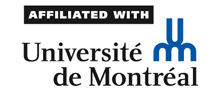By Renan Levine, Lecturer, University of Toronto-Scarborough
What is the story?
In a previous blog entry, Steffen Zittlau and Thomas Gschwend discussed the intricacies of how electoral thresholds must concern instrumental voters who seek to influence post-election coalition negotiations in Lower Saxony.
In Israel, the electoral system provides centrifugal incentives for voters to cast votes for small parties who can make outsized demands on the large parties during coalition negotiations or provide a voice for minority population sectors in parliament.
Israel has a very low electoral threshold (2%, about 75,000 votes in 2013), combined with a ‘pure’ proportional representation (PR) system that treats the entirely country as one district with 120 parliamentary seats. With no party being able to win an outright majority, multiparty coalition governments are the norm.
Effect 1: Low threshold, many parties and a large surplus of seats
Responding to these incentives, political entrepreneurs formed 32 parties to contest the 2013 election, making it difficult for many to cross the threshold.
Twenty parties ultimately fell short of the threshold. Cumulatively, these parties attracted almost 270,000 votes (or 7% of the total votes cast).
If all these votes had been cast for the same party, that party would have been the sixth largest party in parliament (see Figure 1).
Figure 1: Israel Election Results 2013
Effect 2: Large surplus benefits largest parties, especially PM Netanyahu’s Likud
Votes “wasted” on parties too small to cross the threshold created surplus seats which are allocated using the Hagenbach-Bischoff method, favoring large parties. In 2013, this method benefits incumbent Prime Minister Benjamin Netanyahu’s Likud Party.
The Likud received three out of the eight seats allocated through the Hagenbach-Bischoff method.
The second-largest party on the right also received an extra seat. These extra seats give Netanyahu quite a bit of flexibility in choosing coalition partners and some leverage over those potential coalition partners despite his party’s disappointing electoral performance and the failure of a small nationalist party to cross the threshold. See also the following graphic in English, depicting the election results by party-bloc.
Effect 3: Threshold paradoxically takes seats away from nationalist bloc, but gives the largest nationalist party more leverage when assembling a coalition
The electoral threshold draws an arbitrary line between small parties that are represented in parliament and those that are not. The largest party in the outgoing parliament, centrist Kadima, imploded, but a remnant defied exit poll projections and barely crossed the threshold with 2.1% of the vote to secure two seats. A far-right party, Otzma Leyisrael, lost too many voters to similar parties in the nationalist bloc led by incumbent Prime Minister Benjamin Netanyahu and the nationalist’s religious party allies, and missed crossing the threshold by under 10,000 votes. Although Otzma Leyisrael’s failure to cross the threshold cost the Netanyahu’s bloc valuable seats, when the surplus seats were allocated, the nationalist bloc still was fortunate to obtain a razor-thin majority of 61 seats in the 120 seat parliament.
Despite being a natural ally of Prime Minister Netanyahu,
Otzma Leyisrael’s exclusion is to Netanyahu’s advantage. Otzma Leyisrael would have been the most extreme party in any coalition, and might have pulled coalition policy too far to the right for any potential coalition partner from the center.
Setting aside Netanyahu’s own policy convictions or the international community, the inability to attract any support from the center would put Netanyahu’s government at the mercy of every one of its nationalist and religious allies.
Effect 4: The flexibility to form coalitions without the religious parties, opening a window for dramatic domestic policy change.
Netanyahu could still assemble a coalition with his nationalist and ultra-Orthodox religious parties allies with 61 seats. Without Otzma Leyisrael, Netanyahu has several coalition options, which at a minimum, give Netanyahu more leverage over these religious parties in coalition negotiations than in the past and may open a window for dramatic domestic policy changes. These options include:
- A minimal connected winning coalition with nationalist-Orthodox Bayit Yehudi and centrist Yesh Atid with Likud occupying the coalition policy median.
- A coalition of the secular center, combining Likud with Kadima, Yesh Atid and former Kadima leader (and Likud MP) Tzipi Livni’s Hatnuah Party, yielding 62 seats.
Election result source: Official Israeli Government Election Website (in Hebrew).
